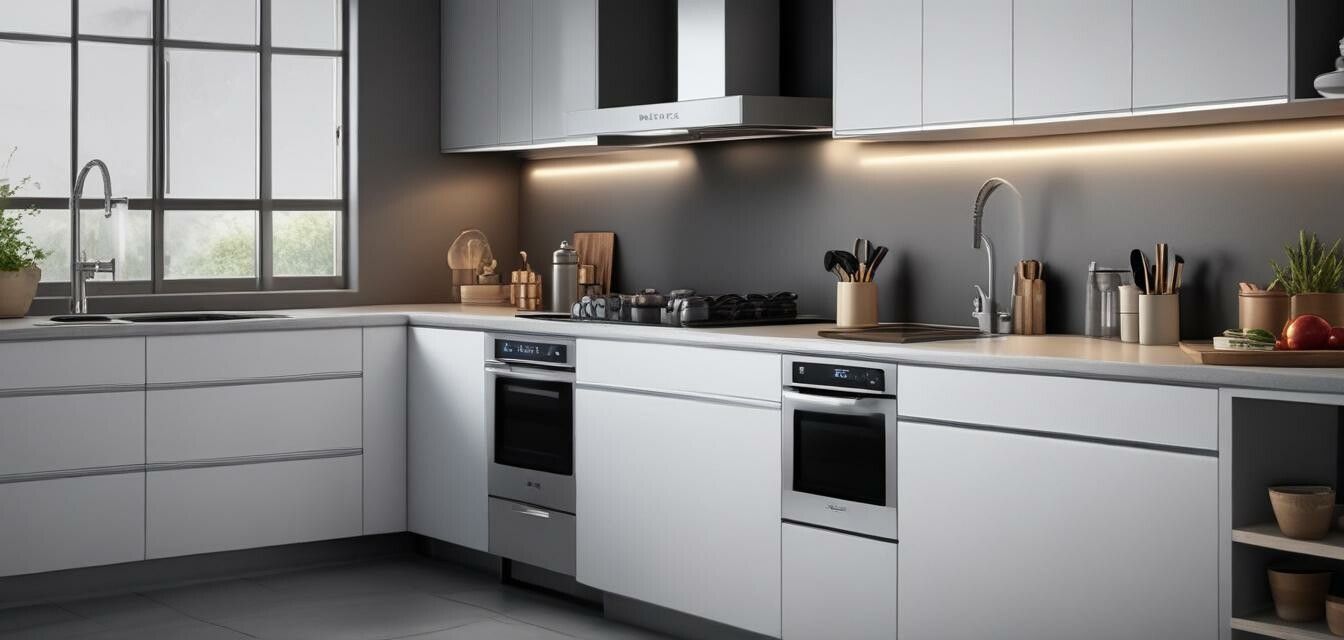
The Role of AI in Smart Kitchen Appliances
- AI enhances efficiency and convenience in kitchen tasks.
- Intelligent appliances adapt to user preferences.
- AI-driven learning leads to improved cooking experiences.
- Integration of voice assistants streamlines kitchen operations.
- The future of kitchens is moving towards complete automation.
The integration of artificial intelligence (AI) into kitchen appliances represents a significant advancement in home technology. When you think about the future of cooking, imagine a kitchen that not only helps you prepare meals but also learns from your habits and preferences. This deep dive will explore how AI is being incorporated into various kitchen appliances, enhancing user experiences and transforming our cooking practices.
Understanding AI in Kitchen Appliances
AI in kitchen appliances uses data and algorithms to provide a more personalized and efficient cooking experience. From smart ovens that adjust cooking temperatures to intelligent cooktops that guide users through recipes, the applications of AI are wide-ranging. Let's take a closer look at what makes these appliances smarter.
Key Features of AI-Enabled Appliances
| Feature | Description |
|---|---|
| Adaptive Cooking | Automatically adjusts temperature and cooking time based on the recipe. |
| Voice Control | Integrates with voice assistants for hands-free operation. |
| Learning Algorithms | Analyzes user preferences to suggest recipes or adjustments. |
| Remote Monitoring | Allows users to monitor cooking progress through mobile apps. |
| Energy Efficiency Tracking | Optimizes energy use by tracking consumption patterns. |
Benefits of AI in the Kitchen
The benefits of integrating AI into kitchen appliances extend beyond simplicity. Here are a few of the advantages that smart kitchens provide:
- Increased Efficiency: AI smart appliances reduce the time spent on cooking and cleaning.
- Enhanced Safety: Sensors can prevent overheating and fires in appliances.
- Waste Reduction: Intelligent inventory management helps users maintain ingredient freshness.
- Customization: Appliances adapt to dietary restrictions and tastes.
- Remote Control: Users can manage appliances remotely, even when not at home.
Innovative Examples of AI Integration
Various kitchen appliances now incorporate AI technology, making cooking more intuitive. Some notable innovations include:
- Smart Ovens: These devices use AI to recognize food types and adjust cooking settings automatically.
- Bluetooth-Enabled Appliances: Connect to mobile devices, allowing for recipe sync and adjustments.
- Smart Refrigerators: Track food inventory and expiration dates, helping manage freshness.
- Intelligent Cooktops: Provide real-time guidance, adjusting heat levels for optimal cooking.
The Future of Smart Kitchens
As AI technology continues to evolve, the kitchens of tomorrow will be an even more interactive space. Imagine a kitchen that not only prepares your meals but also has a complete understanding of your preferences, nutritional needs, and cooking habits. The inclusion of AI will lead to not just smarter appliances, but a more connected and responsive kitchen environment.
Emerging Trends
The following trends are shaping the future of AI in kitchen appliances:
| Trend | Description |
|---|---|
| Increased Personalization | Appliances will offer tailored solutions based on user preferences and feedback. |
| Integration with Smart Home Systems | AI appliances will connect seamlessly with other smart home technologies. |
| Focus on Sustainability | Appliances will increasingly emphasize energy efficiency and environmentally friendly practices. |
| Enhanced Security | AI technologies will improve appliance security introducing multi-factor authentication. |
Conclusion
The role of AI in smart kitchen appliances is becoming increasingly significant, revolutionizing the way we cook and engage with our culinary spaces. By enhancing personalization, efficiency, and safety, AI is making kitchens smarter and preparing them for the future. As technology advances, it is crucial to stay informed about how these innovations can transform our cooking experiences.
For more information about the latest kitchen technology, you can explore our Kitchen Technology News section or look into our Smart Ovens for intelligent cooking solutions.
Pros
- Greater convenience for everyday cooking tasks.
- Time-saving features streamline meal preparation.
- Increases overall kitchen efficiency.
Cons
- Initial investment costs can be high.
- Ongoing maintenance and software updates may be necessary.
- Reliance on technology may lead to diminished cooking skills.
Stay Updated
To keep up with the latest trends in kitchen technology, be sure to visit our Smart Kitchen Buying Guides and learn about new innovations in Touchless Faucets and beyond. Join the smart kitchen revolution today!